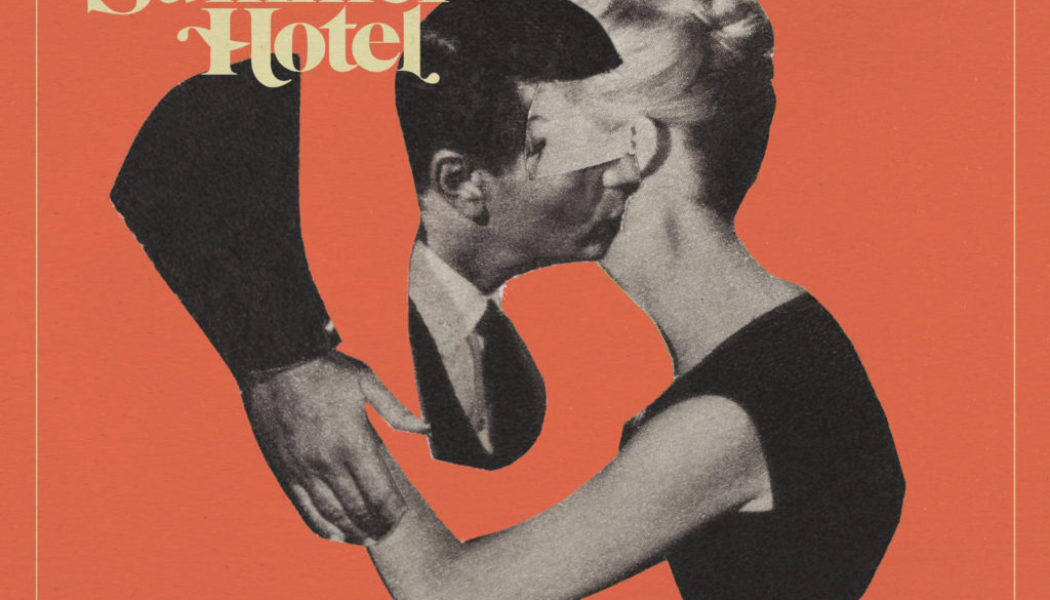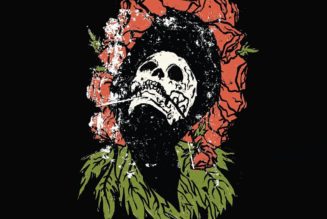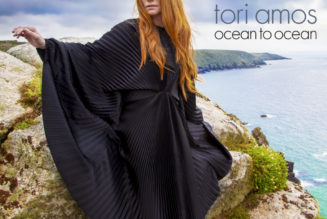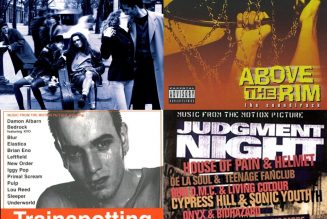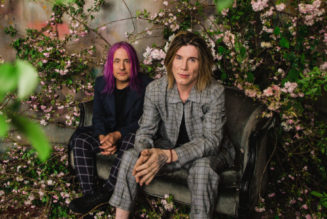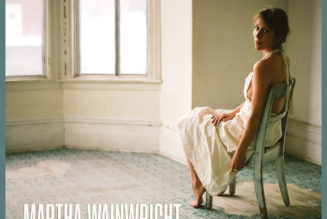Artist: Aimee Mann
Album: Queens of The Summer Hotel
Number of tracks: 15
Label: SuperEgo Records
Release Date: November 5, 2021
The sun is shining on Aimee Mann. “It is pretty much all the time,” she remarks from her Los Angeles home, during an East Coast monsoon. Consistently lauded as one of the greatest living songwriters, her new album Queens of The Summer Hotel inarguably perpetuates her reputation for uncompromised artistry.
Her process for the new album began three years ago when she began writing songs for a stage adaptation of Susanna Kaysen’s book Girl, Interrupted, about Kaysen’s stint in a mental hospital.
“A different creature” from the stage adaptation, the title Queens of the Summer Hotel takes inspiration from a poem by Anne Sexton, who, like Susanna Kaysen, was also treated at McLean Hospital, along with Sylvia Plath and Robert Lowell, who have their own song on the album. “I had this idea of calling a mental institution a summer hotel because that just has a lot of weight to it,” Aimee tells me.
As always, Aimee approaches difficult subjects with an equal measure of strength and vulnerability, but still remains stunningly melodic and, somehow, hopeful. “Suicide Is Murder” is her favorite song on the album, its subject matter handled with her signature uncompromised delicacy and intelligence.
Aimee went on the record about her new album and offers some astute advice for songwriters, including why it’s important to be honest as an artist.
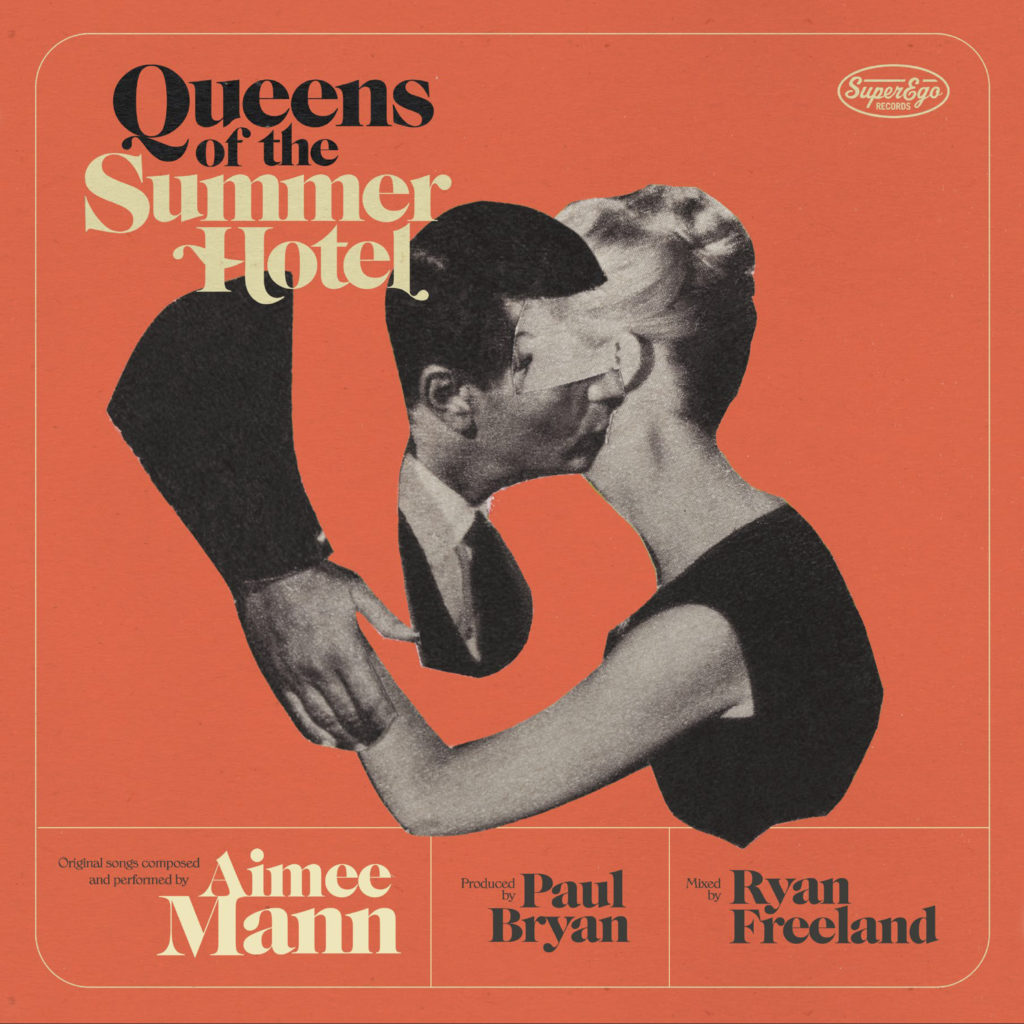
SPIN: With so many small clubs closing, I’m curious how that scene helped form you as a young musician?
Aimee Mann: When I first moved to Boston, there must have been 100 clubs in Boston. Of all sizes, some really teeny. You could just play seven days a week. It was crazy. It was great to be a musician, in our early ’80s. I played in this kind of funky art band, which was wildly inaccessible, and accessible musically. Practically abrasive. I actually supported myself just playing shows. It wasn’t high on the hog, but I could pay rent and buy booze.
Then you dropped out of Berklee College of Music to form a band. How did playing in those small venues form you as a songwriter and a musician?
Well, I think I wasn’t one of those musicians who was just naturally talented. I know people who had figured out how to play Beatles’ songs and work out a part on their own. I could never have done that. I really did need to learn about music theory, and have some knowledge of structure. Chord structure, and chord progressions, that kind of thing, and music theory. That was very helpful to me.
Going to Berklee drew me to the culture of musicians who practiced all the time. I think before that I felt like mostly you just had talent or you don’t. But to realize that you could practice and get better, and play in a lot of shows is really good practice. When I formed ‘Til Tuesday, we practiced all the time. We were always practicing, and always writing songs, and always working on stuff. We worked really hard. Even playing shows around town, that’s crystallized kind of practice, because it’s practice under pressure. You always get better when you’re under pressure.
How do you feel about the fact that currently, you’re thought of as one of the best songwriters in music? Because you really are.
I love it. I love that because it really is what I love to do. More than anything I love writing songs. I love well-written songs, I love analyzing other people’s songs. I love working at it, and trying to get better. Trying different things, and being out.
I think songwriting is just a weird, magical, mixture of where you’re mingling words, which are left-brainy, with music that is very subconscious and subterranean. To me, it’s endlessly fascinating.
Was the new album a different process for you in any way?
It was because writing for a stage production, I really felt like I could do anything. I didn’t have to worry about having a drumbeat that goes all the way through, a group that goes all the way through. I knew I could switch tempos, I could modulate, I could use more complex chords. I wrote all the songs on piano, so it’s much easier to get a more complex sound. I don’t play the piano, so that was fun, just discovering different chords, and sounds. Sometimes, I would just rather bang on the piano and see what accidental chords would come up.
How did the opportunity to work on this stage adaptation come about for you?
I was approached by the producers. It’s a team because it’s Barbara Broccoli who is the producer for all the Bond films, and her husband Fred Zollo, who has produced a lot of theatrical stuff. Their daughter, who is a fledgling producer, and she’s a writer, and Girl, Interrupted was a book that was really important to her. I think this was a family project, to have a musical adaptation or play with music. I think it’s unclear exactly what form it’s going to take because I was off and running. They do have a writer and a director, but I moved much faster than they did. I got the book and marked up passages that I thought would translate into song well, and I just wrote in a frenzy.
Had you read the book before?
I never did. I think the movie is different because what you do realize about the book is that Susanna Kaysen approaches her time in McLean Hospital as almost a reporter, so it’s very detached. Being detached, there’s a reporting on incidents and events, but not a lot of backstory, so you don’t really know…there’s not a lot of what her thought and viewings are. I think the movie probably supplied some of that. I would imagine that the play would have to supply some of that, a back story, and more of an arc.
Did the song“Suicide Is Murder” come from a personal place for you?
Yes and no because “Suicide Is Murder”, the idea came from the book. Susanna was ruminating on her own suicide attempts, and talking about what’s required to attempt suicide that, in a way, it’s like murder, where you have the motive, means, and opportunity. I felt that was an interesting idea, that was a real definitive viewpoint, that she had.
My own experience with suicide, having had friends commit suicide — a very good friend of mine and his son committed suicide. One of the striking things about that is that there’s an aftermath where everyone who’s left behind blames themselves for not having noticed, or done anything, or intervened in some way. It’s one thing to contemplate, in this almost cold way, what suicide requires, but you have to keep in mind what it’s going to do to everybody around you.
Tell us about working with Paul Bryan on this album.
Paul started out as my bass player. I just really admire his approach to music because he’s one of those people who constantly learn, and growing, and wanting to be a better musician, and practicing. I started recording with him a long time ago. I’ve done, I don’t know, four or five records with him. He did all that orchestration for the arrangement.
I just think he’s incredibly talented, and also he’s really nice, calm, and encouraging, which is half the battle.
Now that you’re so recognized, do you feel pressured when you start writing music?
I don’t because the music world is so fractured. There’s 50,000 sub-genres. I’m obviously much older. Now that there’s no chance of having what anybody would consider a hit record, there’s no pressure to try to make a hit record or have a single, or any of that kind of stuff. I finance my own records. I really do feel like I can do whatever I want. There’s no reason to try to adapt to any marketplace because nobody buys music anyways. There isn’t a marketplace.
I really like having projects. I love having this project, this specific idea of stage production from a book about somebody in a mental institution, which, obviously, I felt was right up my alley. I like writing for other characters and trying to get into their heads and see where I relate to those characters.
You said there’s no chance in having a hit…?
It’s like the music on — I don’t know, the radio, Top 40. How other people consume the music. It’s all a very dance-oriented pop. I have no interest in it. It would be ridiculous for me to try to make a record like that. I just get way off in the other direction.
There’s always going to be some people who respond to you being honest as an artist. If you do what really interests you and excites you, then there’ll be people who respond to that. Where if you try to conform to some audience that’s not really yours, then people can feel that too. It’s not that fun.
What are you most proud of on this album?
I think it’s musically really interesting, while still being melodic. For me, it seems really different although probably doesn’t sound that different to people. Just the kinds of chords that I used, different kinds of chord progressions. It’s a little more musically complex. I don’t usually modulate within a song. It was really fun just to go wherever my ear wanted to take me, and not worry if it sounded weird, or if there were sections that repeated, or any of that.
I’ve been playing that a lot, and I really like playing it. I’m really proud of the writing, and I’m proud of the lyrics, and musically where it goes.
Do you have any advice for young artists who want to be great songwriters?
I found that you write up to the level of your own taste. I guess, you get better as you do it. It’s hard to describe, but one thing that I really like in other music is exact rhymes, and internal rhymes. That kind of stuff is really hard to make sound natural. It’s like a fun puzzle for me, and I find that it does get easier the longer I write. In songs on earlier records, I would try, and I couldn’t get it and had to settle for a rhyme that wasn’t exact. At some point, you have to just go like, this song, it’s not going to get any better. It’s the best you can do.
It’s a fun challenge for me to feel like I know that there’s a way to make this work. Sometimes you have to throw out the original line, or find a different rhyme, or a different way to say something so that you can try to get those pieces together. I do have to work at it, and there has to be something that’s fun about it for me. If you don’t care about that stuff in other people’s songs, then you feel like “Oh, life and time rhyme, okay.” You’re certainly never going to be a writer who has that exactitude.
I know some people that don’t care about it, that’s fine. To me, it’s really satisfying when I hear other people do it. When they have an emotional idea that they put into words, but they also make it rhyme, and have interesting images along the way. It’s like a magic trick, but you have to care. There’s something that’s really inspiring about people who do care about these sort of details.
I don’t know, that’s important to me. It’s like when you’re at a store and somebody gives you too much change, and you give it back because you’re not an asshole. There’s something that’s important about that. There’s an exactitude, and it feels good to have rules for your life.
Sounds like you’re talking about integrity.
Yes, a kind of integrity, and I think artistic integrity is a thing that is contagious, and that’s why it’s important.
This is like the geeky stuff I think about. I guess because I like people who care. I like people who don’t just throw stuff away. It warms my heart to see Paul Bryant practicing scales because he decides that he wants to play jazz. Even though he’s a great bass player, that he’s still practicing. That he’s in his 50s, and he’s like, “No, I’m going to put headphones on and practice backstage.” When he doesn’t have to. It really warms my heart, because he cares about something. He wants to do it right, he wants to get better. There’s a thrill when you have a goal, and you work hard at it, and then you see it yielding.
There’s a thing that happens to me sometimes when I’m working on a song, and I have a verse. Maybe I have a line that’s okay, and it’s got a certain vibe, and I’m trying to make it work. I feel “I know that there is an answer to this. I know there’s a way to do it. I sense that there’s a rhyme that works or a way to phrase it, but I can’t. I know if I just keep working at it, it’ll happen.
That actually applies to pretty much anybody in a creative field.
Yes, it’s everything, right? It’s how you feel when you meet somebody, and you’re like…something’s off about this person. I don’t know what it is… It’s probably the little details that you’re not seeing consciously but is something that’s if you analyze it, maybe you can figure it out. It’s important to trust that a part of your brain that works in the background knows what it’s doing.
